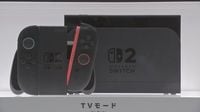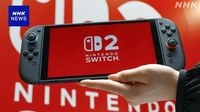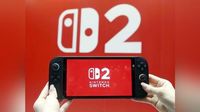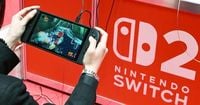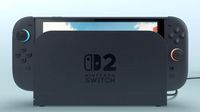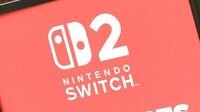Nintendo has made the unprecedented decision to delay the start of pre-orders for its upcoming console, the Nintendo Switch 2, in the United States. This move comes as the company seeks to assess the impact of tariffs imposed by President Trump, alongside changes in market conditions. Originally set to begin on April 9, 2025, the new date for pre-orders has yet to be announced, though the release date remains unchanged at June 5, 2025.
In a statement to IGN, Nintendo confirmed, "The pre-order start date for the Nintendo Switch 2 in the United States will not begin on April 9 due to the need to evaluate the impact of tariffs and changes in market conditions. We will announce a new pre-order start date later. The release date of June 5 remains unchanged." This delay is specific to the U.S. market, with pre-orders in other regions, such as the UK, continuing as scheduled.
The pricing for the Nintendo Switch 2 is set at 49,980 yen (approximately $449.99 in North America), with the Mario Kart World Set priced at 53,980 yen. However, there are growing concerns about potential price increases due to the tariffs, which could affect both the console and game prices. Voices of backlash have already emerged in the U.S., where consumers are worried that the price hike will extend beyond the Switch 2 to other products as well.
Former Nintendo of America PR managers Keith Ellis and Christa Yang expressed their concerns in a YouTube discussion, criticizing the pricing strategy following the Nintendo Direct announcement. Ellis remarked, "I don't want to exaggerate, but it feels like a real crisis for Nintendo." This sentiment reflects a broader anxiety among consumers regarding the economic implications of rising prices.
Amid these developments, the U.S. stock market has experienced a downturn, partly due to China's retaliatory measures against Trump's tariffs. Tariffs on Chinese products could rise to 54%, with China set to impose an additional 34% tariff on U.S. products starting next week. Trump has stated that China reacted poorly to these tariffs, asserting that his policies will remain steadfast.
The economic landscape is becoming increasingly uncertain, with some major news outlets declaring that the era of affordable products for U.S. consumers is nearing its end. Tariffs, essentially taxes imposed on imported goods, can lead to inflation and price increases, which are especially concerning for gamers who are already facing rising costs for technology products and gaming accessories.
Daniel Ahmad, an analyst at Niko Partners, warned that Nintendo's decision to move some manufacturing operations to Vietnam to mitigate U.S. tariffs might need reevaluation. He stated, "Nintendo moved some of its manufacturing base to Vietnam to offset U.S. tariffs on China, but the sudden imposition of tariffs on Vietnam may force the company to reconsider its strategy. The mutual tariffs on Vietnam and Japan are higher than expected, meaning Nintendo will face significant challenges if these tariffs take effect."
As the gaming community waits for updates on pre-orders and pricing, the situation highlights how global trade policies can have immediate and far-reaching effects on consumer products. Nintendo's careful approach reflects a growing awareness of the complexities involved in international trade and the potential repercussions for both the company and its customers.
In addition to the economic concerns surrounding the Nintendo Switch 2, global events are also shaping the context in which these discussions are taking place. For instance, Ukrainian forces have recently accelerated their efforts to dismantle Russian artillery, reporting damage to 122 artillery pieces in just one day. This military success underscores the ongoing conflict in the region and its potential implications for international relations and trade.
Moreover, drone technology has played a significant role in modern warfare, as evidenced by recent footage showing drones successfully evading anti-aircraft missiles to strike the Russian Black Sea Fleet. Such advancements in military technology raise questions about the future of warfare and the role of innovation in conflict scenarios.
At the same time, the U.S. has seen a surge in discussions around capital punishment, particularly as death row inmate Michael Tangi made headlines with his request to halt his execution due to health concerns related to obesity and sciatica pain. This case, occurring during a time of increased executions under the Trump administration, has reignited debates about the ethics and efficacy of capital punishment in America.
As the world grapples with these multifaceted issues, the intersection of technology, economics, and ethics continues to provoke thought and discussion among consumers, policymakers, and industry leaders alike. Nintendo's decision to delay pre-orders for the Switch 2 is just one example of how companies are navigating these turbulent waters, balancing consumer expectations with the realities of a rapidly changing global market.
In conclusion, as consumers await further news on the Nintendo Switch 2, the broader implications of tariffs and market dynamics will undoubtedly shape the gaming industry and consumer experiences in the months to come.
